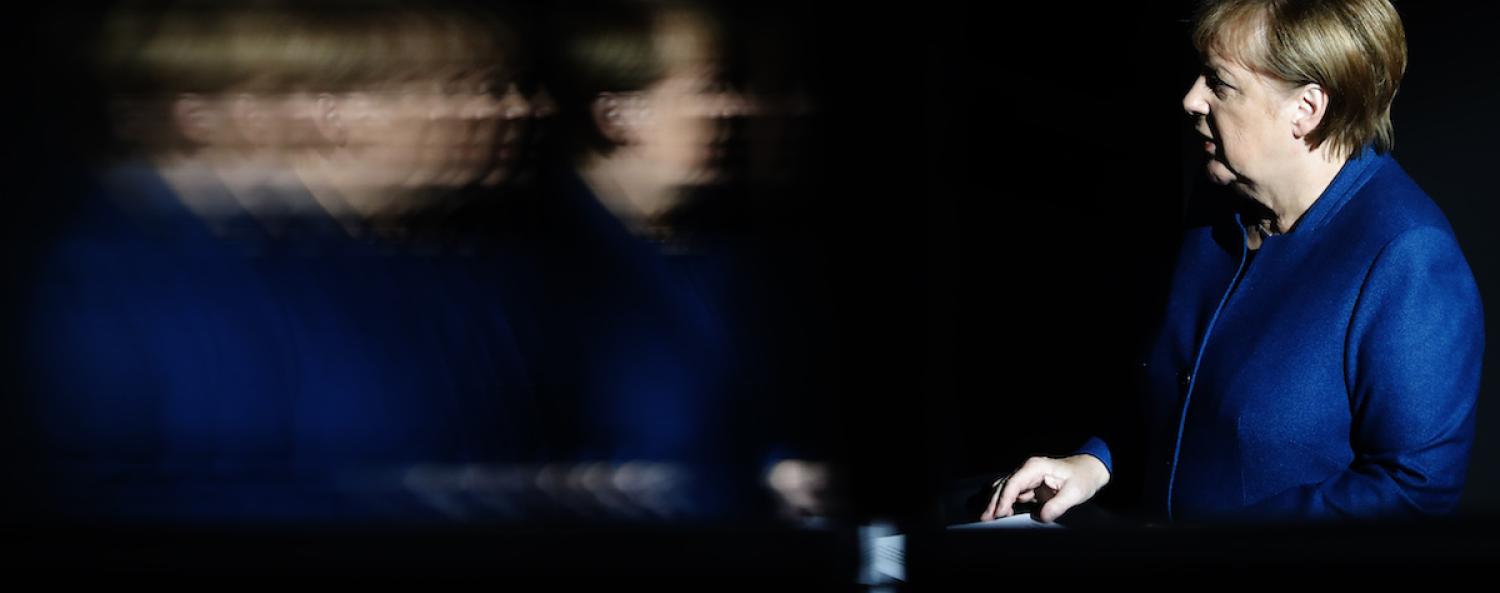Underlining the continuing chaos in Europe, it has not been a good week for Germany, the UK, or Italy. The end of the tunnel looks far away, and unrelentingly dark.
In Germany, the extraordinary result in this month’s state election in Bavaria has shaken an already weakened Chancellor Angela Merkel and her grand coalition (GroKo) government to the core. The polls had foreshadowed that the Christian Democratic Union’s (CDU’s) sister party in Bavaria, the Christian Social Union (CSU), would suffer heavy losses – and it did. Its vote dropped by more than 10%, to only 37.2%, thereby forcing the CSU at state level into finding a coalition partner for the first time since 1950. It will do so but the blow to the CSU, which had become the natural and expected party of government in conservative, Catholic Bavaria, is enormous.
The national implications of the result are even more significant. The outcome has again exposed the inexorable decline of Merkel’s CDU/CSU. The latest German polls have the CDU/CSU nationally at somewhere between 25% and 29% – significantly lower than its result (33%) at the 2017 elections – and falling.
And it is widely expected that the CDU will again do very badly at the next state election, in Hesse. At the moment, the polls are showing the party at about the same levels as the CDU/CSU nationally, a huge drop from its 2013 Hesse election result of 38.3%. More dire news for Merkel and her party.
To say this is starting to look like a train wreck for the GroKo is to understate the problem.
So who is gaining votes at the CDU/CSU’s expense? Definitely not the Social Democrats (SPD). The party of Helmut Schmidt and Willy Brandt is rapidly becoming just a small statistic in the wider equation. It is polling nationally at somewhere around 14-15% and has been overtaken by both the far-right Alternative for Germany (AfD) and the Greens. Even the pro-business Free Democrats (FDP) are threatening to move ahead of the SPD. In Bavaria, the SPD could only muster 9.7% of the vote.
To say this is starting to look like a train wreck for the GroKo is to understate the problem. Talk about possible alternatives to Merkel is again rife. And there are many within the SPD who put the blame for the SPD’s demise squarely at the feet of those in the party leadership, including its Chair, Andrea Nahles, who supported the SPD joining the CDU/CSU in another grand coalition.
The result of all of this is that Merkel’s focus has inevitably turned more and more to her domestic problems, rather than showing the kind of leadership Europe so desperately needs. Her authority has been weakened at a time when the shape of the new Europe is still to be defined.
Brexit remains a huge problem for the remaining European Union members. The stalemate between the EU and the UK, this time over the very difficult Irish border issue, exposes again the massive task still ahead if any kind of deal for Britain’s withdrawal is ever to be reached, let alone by next March.
EU leaders meeting this last week in closed session – with Britain’s Theresa May outside the door – determined that not enough progress had been made to justify their taking decisions. That might still happen, and, in theory, an extraordinary EU summit could be called at relatively short notice to this end. But it is clear that vastly more progress will be needed if this is to happen. The stalemate just reinforces the deep divisions within the Tory party over policy on Brexit.
The other immense problem for the EU is that many of the remaining EU members, especially those with nationalist/populist governments, fundamentally disagree with Merkel’s (and Macron’s, although their views are not identical either) vision for the EU after Brexit. They are for less Europe and a return of sovereignty to capitals, not more Europe, as Merkel wants.
Increasingly, they are just following basic nationalist/populist instincts, which are not at all compatible with the sort of budgetary strictness that Merkel insists on, and are simply ignoring Brussels.
A stark example this week has been the EU Commission’s reaction to Italy’s draft budget. What the Five Star/League (M5S/Lega) government wants to do is to spend its way to economic growth. But, by doing so, Italy is far exceeding strict EU rules on debt. Italy’s government debt, at 130% of GDP, is already significantly in breach of the EU rules. And yet it still wishes to increase net government expenditure next year by 2.7%, when the rules would only permit 0.1%. It wants to push its budget deficit to about 2.4% of GDP.
Predictably, the Commission, in the form of Economic Affairs Commissioner Pierre Moscovici, has sent a very stern letter back to his Italian counterpart, Giovanni Tria, pointing out that the draft budget represents an egregious breach of EU rules. In comments on 18 October, EU Commission President Juncker also underlined this, noting how lenient the Commission had been with previous Italian breaches, implying that the Commission, this time, would not be as “kind, gentle and positive”, as he put it.
All in all, more signs of a Europe in serious disarray. Not good for global stability and economic health either, especially at a time when the trans-Atlantic relationship is so fraught.

